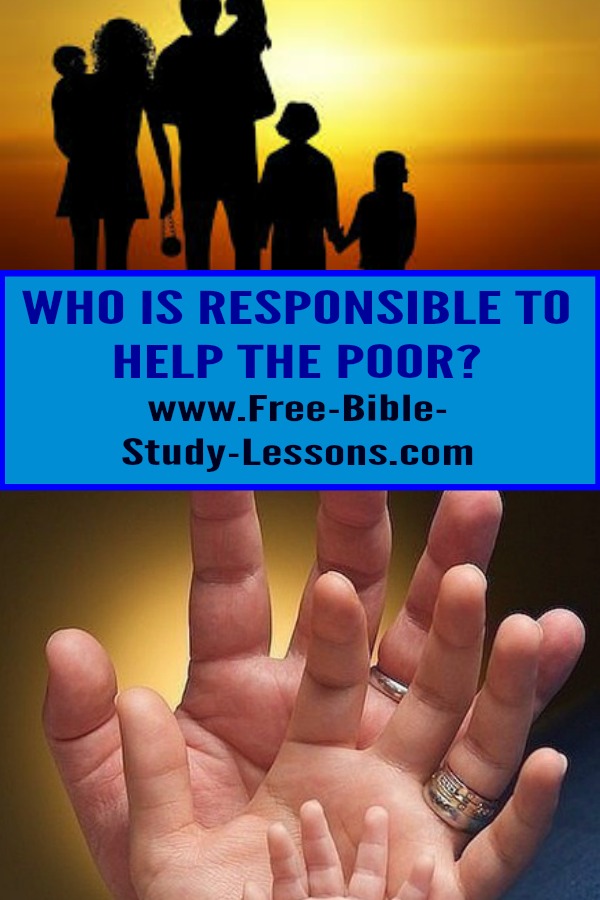| site search by freefind |
- Home
- Social Theory
- What Is the Christian View of Civil Government
[If you purchase anything on this site, I may make a commission. Disclosure Policy]
What Is The Christian View
Of Civil Government?
Quick Look: The article explores various civil government structures depicted in the Bible and society, ranging from monarchy to anarchy, while considering whether Scripture endorses a specific type of government. Anarchy is dismissed as unrealistic due to mankind's inherent sin nature. According to biblical principles, a government's core functions include law enforcement, national defence, and public safety, with taxation ideally capped at ten percent. The role of government is seen as safeguarding property and facilitating peaceful exchanges while being submitted to God's overarching authority. Ultimately, any government style can succeed under God’s guidance but risks corruption without it. For more details, read the article below.
Several types of civil government are illustrated in the pages of Scripture, from anarchy to monarchy. Does the Bible promote one specific style of government? What is the Christian view of civil government? What does God say is the style should people have rule over them?
Sitemap -
Newsletter -
Statement Of Faith -
Donate
Follow us on social media for daily Scripture comments and more at MeWe, Facebook or YouTube.
“May you answer the following question wisely, because, other than the first all-important questions which deal with eternal life [that is, What will you do with the Christ? Will you receive Him or reject Him as Saviour and Lord?], the next most important question, with respect to this world is: What will you allow civil government to do to you? That is, What is [its] ...proper role...in a society of free and self-responsible individuals?” Tom Rose, Economics: Principles and Policy, pg. 83
Considering the evil and harm toward which civil governments naturally tend, some have questioned whether we would be better off without them altogether. While this may initially seem like a good idea, it is not Biblical. The Bible does give civil government a legitimate but limited place in society.
The result of no government is called anarchy. The problem with anarchy is that it supposes mankind is basically good. The idea is that, left to themselves, everyone would work out their own problems and get along. Of course, the Bible reveals mankind has been corrupted, and so we all begin with a sin nature. In practice, what happens in anarchy is that the most powerful people rise to take advantage and abuse the weaker people. There is no government to stop them or restrain their violence. They, in fact, become a new government, so a state of anarchy [no government] does not last very long.
What Is The Christian View Of Civil Government:
Biblical Boundaries
So what should we be looking for in a civil government? What are the qualifications and boundaries for such a government?
1. All the officers of the civil government are to be dedicated to following the laws of God. They are to personally write out the book of Deuteronomy upon taking office so that they know the foundational laws of God and do not come to think that they are superior to others in society. [Deut. 17:18]
2. The civil government is to enforce God’s Law in the nation. Only God can declare the ultimate Law. Any laws made by a civil government are only application laws, i.e. practically applying God’s Law in a specific situation. In other words, they are to represent God in working out differences between people in society, which individuals or organizations cannot work out for themselves. This includes, of course, punishing criminal activity. [Deut. 1:16-18, Rom. 13:4]
3. The civil government must maintain a defensive military to protect the nation from outside invaders. This military could consist of a trained volunteer force or a limited core of professional soldiers supplemented by trained volunteers as needed. It would supply enough advanced technology and training to defend the nation but would be insufficient to be an aggressive force.
4. Although not explicitly mentioned, it is implied that the government could maintain a police force to protect citizens against the activities of criminals. This would include medical quarantine and specific public safety issues.
“The officials of the State legally represent the community in Biblically limited ways: they offer protection of life and property [Ex. 22], trials by jury [Ex. 18; Rom. 13:1-7], national defense [Judges], medical quarantine [Lev. 13, 14], and public safety [Ex. 21:28-36].” Dr. Gary North, Inherit The Earth, pg. 15
“The civil government possess a monopoly: the monopoly of violence. It alone has the right to inflict fines, physical punishment, and death on those who violate the laws of God and those statutes written by men in conformity to God’s legal principles.” Dr. Gary North, Inherit The Earth, pg. 155
“...the most basic function - indeed, the only necessary function - of civil government is to safeguard property so that individuals can go about exchanging goods and services with each other peacefully and for mutual benefit.” Tom Rose, Economics: Principles and Policy, pg. 95
“Government is not reason; it is not eloquence - it is force. Like fire, it is a dangerous servant and a fearful master.” George Washington, quoted in Tom Rose, Economics: Principles and Policy, pg. 84
5. Taxation is to be limited [not to equal or exceed ten percent of a person’s income] and equal for both the rich and the poor. Such a limited income forces a civil government to deal only with its Biblical mandate, as it would not have the funds to develop into the socialistic monsters we have today. [Ex. 30:15]
What Is The Christian View Of Civil Government:
Style Of Government
The Bible declares that the world is a theocracy. All of it is to be ruled by God. The individual is to be submitted to God. The family is to be submitted to God. The church is to be submitted to God. And the civil government is to be submitted to God. Each has its own sphere [sometimes overlapping] of authority, and none is to interfere with the others, although all are to be under God.
As far as how a theocracy would be practically worked out in the style of the government, the Bible does not say. That is part of mankind working out Biblical principles in daily life. This means that different nations could choose other forms of government - all under God - and still be perfectly acceptable before God.
The Bible illustrates different forms of civil government:
Dictatorship: Moses was the absolute ruler under God. From a human perspective, his word was law. He did develop a system of representatives/judges that were accepted by the people and had direct rule over the people. This gave it many of the features of a democratic republic.
Military Dictatorship: Joshua was the general/leader with absolute authority over the nation under God. Presumably, he maintained the system of representatives/judges established by Moses. He allowed the people freedom of choice, even in their religious beliefs. He knew that you could not force convictions from the outside in.
Judges: Men and women were chosen by God and accepted by the people as leaders. They often united the people to throw off foreign oppressors and then served to bring God’s justice to society.
Monarchy: Saul, David, and others ruled as kings. Their reigns were a success or a failure, depending on how much they were submitted to God’s overall theocracy. There are no large monarchies existing today. Some monarchies - such as England - are really republics because the royal figure has little or no power in the civil government.
What Is The Christian View Of Civil Government:
Other Styles Of Government
Other forms of government include:
Democracy: A democracy is a rule by the people. The majority wins. This works if the majority are righteous people. Evil wins if the majority - or the active majority - are evil. It can be corrupted very quickly when the people learn they can vote themselves money through socialist theft. The bottom line is mob rule. It has no ultimate rule of right and wrong. Whatever the majority decides is right must be right. A strict democracy is impossible when many people are involved because it is too difficult to have everyone vote on every issue.
Republic: A republic is a practical democracy. Instead of every person voting on every issue, the people vote for representatives who will vote on the issues for them. The representative getting the most votes represents everyone in his district or “riding,” whether they voted for him or not. This sounds good, but again, there is no ultimate right or wrong, so it depends on the character of the people and leaders to succeed. It becomes the representative's job to promise whatever he has to promise to get reelected. Long-term planning is difficult because the government may change every few years. When the wicked are the majority, representatives of integrity who make hard decisions for the overall good of the country probably won’t get reelected. People of compromise and low character - willing to “play the game” - tend to rise to the top.
“Government is a broker in pillage, and every election is a sort of advance sale of stolen goods.” H.L. Mencken [1880-1956] quoted in Tom Rose, Economics: Principles and Policy, pg. 85
Aristocracy: An aristocracy is ruled by aristocrats, who are generally wealthy, educated people in society. People of influence rule over everyone else. They decide what is right for the nation, and everyone else has to live with it.
Oligarchy: An oligarchy is a situation in which a small group of people control the civil government. It could be expressed as aristocracy, a dictatorship, or something else. Even a monarchy could be an oligarchy if the monarch is controlled by a small group of influential people.
Canada is a constitutional monarchy. The King or Queen of England is our head, but civil government is controlled by our constitution, which is represented by our elected party members.
“The essential idea behind a constitutional republic is that man tends naturally rather toward evil than toward good, and will enslave his fellow man if given the opportunity. Therefore, it is necessary to limit his potential for doing evil by binding him down to a written set of limitations on the power he can wield in the political sphere, the sphere in which coercion is used.” Tom Rose, Economics: Principles and Policy, pg. 73
I am convinced that any form of civil government will work if the leaders and the people are committed to a theocracy, and any form of civil government will become corrupt and tyrannical if the leaders or the people are not committed to a theocracy.
Interestingly, Moses, Joshua, and some of the judges maintained their integrity throughout their time in power. They were men and women committed first of all to God, and they were not corrupted by power or driven by people's whims. Some of the judges became corrupt later in their rule. All the kings had times of corruption, and only David and one or two others had reigns that were basically good throughout.
Whatever form of civil government a nation chooses, from dictatorship to democracy, there must be safeguards in place to limit the government to its God’s ordained function and to limit its taxing power [which includes not being in control of the money supply]. There must be a system in place to remove leaders who violate the limits of government.
What Is The Christian View Of Civil Government:
Frequently Asked Questions
Question: What Does The Bible Say About Secular Laws?
Question: What Does The Bible Say About Secular Laws?
Answer: Secular laws assume that man is independent from God and can make his own laws. This is an anti-Christian position. Only God can make ultimate law. Man's responsibility is to understand God's law and apply it in the various situations of life. Mankind is only allowed to make "application" laws. Any law made by man that contradicts God's law is invalid.
Question: How Does The Sin Nature Impact Civil Government?
Question: How Does The Sin Nature Impact Civil Government?
Answer: In human beings, power tends to corrupt. Every government system should have checks and balances so that no one or group has total authority or power. It must also have a way of removing leaders who violate their God-defined limits of authority.

For more information about Glenn Davis, see our About Glenn page or visit Glenn Davis Books.
Follow us on social media for daily Scripture comments and more at MeWe, Facebook or YouTube.
Sitemap -
Newsletter -
Statement Of Faith -
Donate
Sign up for our free monthly newsletter or take one of our free Bible Study courses.
Please note: We no longer have the commenting feature [maybe again in the future]. Joshua Institute students who have questions or comments on their courses can use the contact button and mention the course name and lesson number in the email. Thank you. Glenn

Privacy - Disclosure
























![At Mount Sinai, did Israel reject relationship [Grant Covenant] and demand a Law Covenant?](/images/IsraelMountSinai-2.png)
